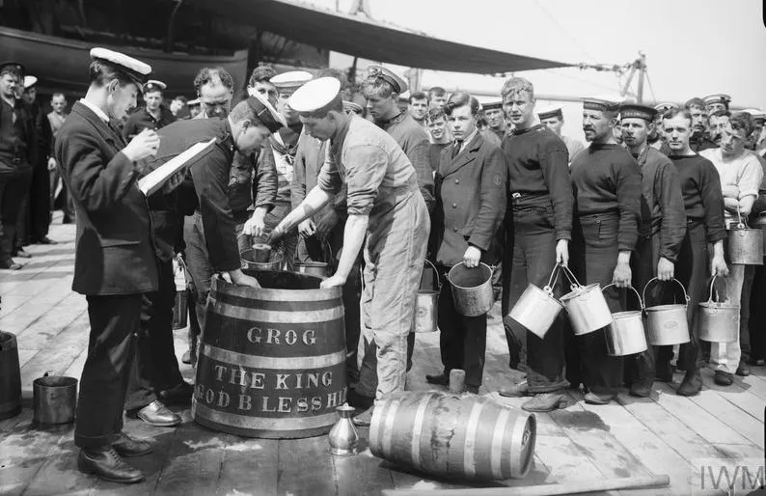
Rum & the Sea
Man’s desire to travel farther and farther across oceans provided several difficulties when it came to supplies (and most importantly what to drink!?). The usual supplies aboard British Royal Navy ships of the 15th century were beer, wine & water, but on longer expeditions the beer would eventually sour and the water would grow algae, so the ships quartermaster was faced with a problem, and the eventual solution was rum…

Rum was introduced into the British Royal Navy in 1655, after the invasion of Jamaica during Cromwell’s West Indies Campaign. Ample supplies were found on the island, due to its abundance of sugarcane, and offered a stable alcohol alternative which, due to the high sugar content, did not sour. 76 years later a rum provision was incorporated into the “Regulations and Instructions Relating to His Majesty’s Service at Sea”, dictating that one diluted half pint (2 gills) of rum was equal to one gallon of beer. Rum became a part of the provisional stock of every ship in the British Royal Navy Fleet.
Rum is often thought of as being invented in the Caribbean islands in the 17th century as a by-product of sugarcane creating molasses which could be distilled into alcohol. However, rums origins stretch much further back than this. An early rum-like drink called brum has been produced by the Malay people for thousand of years and Shidhu, a drink produced by fermentation and distillation of sugarcane juice, is mentioned in Sanskrit texts. Rum was even found in a tin bottle on the Swedish warship Vasa which sunk in 1628. Rum production was recorded in Brazil in the 1520s, and historians generally believe that rum-making and sugarcane found its way to the Caribbean from Brazil.

As a result of rum being abundant on navy ships, the liquor also has a strong association with piracy. When pirates would attack military ships, rum was so bountiful that even after the pirates kept plenty aside for drinking, they had enough left to use it as currency, trading it for other goods. There were plenty of other benefits for pirates keeping rum aboard too… for one, when mixed with water (which often went stagnant aboard) it made the water drinkable again (no wonder pirates had a reputation for drunkenness). Rums delicious pairing with lime is no accident either, as this was done aboard to help prevent scurvy, with the vitamin-C rich limes infusing into the rum.

Aboard Royal Navy ships rum was often drunk neat with sailors getting 2 rations of undiluted rum per day, leading to drunkenness and disciplinary problems. Vice Admiral Edward Nelson, nicknamed ‘Old Grog’ after a grogham cloak he wore, came up with a solution to this by issuing an order that all rum provisions must be diluted with water adding that those “which......are good husbandmen may from the saving of their salt provisions and bread, purchase sugar and limes to make it more palatable to them.” The modification of the rum ration was therefore named a ‘grog’ and was served twice daily aboard Naval ships until 1970 when alcohol aboard was abolished. Until the 1800s grog was traditionally served warm, the following being a standard recipe which you can create at home:
-50 ml Arthur Beale Sea Salted Spiced Rum
-1 teaspoon fresh lime juice
-1 teaspoon brown sugar
-120 ml hot water
-slice of orange & cinnamon stick for garnish

Our Sea Salted Spiced Rum draws on our long history equipping the world’s greatest sailor’s explorers, wayfarers and pioneers (as well as the odd Vagabond!) for over 500 years. Our kit and ropes have been used on ships and adventures throughout the world and some of our more well known customers included Sir Ernest Shackleton, the Everest Climbers and even Buckingham Palace. What better way to put the wind in the sails for your next adventure?
For the perfect summer drink why not try the Arthur Beale Dark & Stormy Cocktail:
50ml Arthur Beale Sea Salted Spiced Rum,
25ml grapefruit juice
100ml ginger beer
2 dashes of Angostura bitters.
Stir gently together in a highball glass with ice and add a slice of grapefruit.

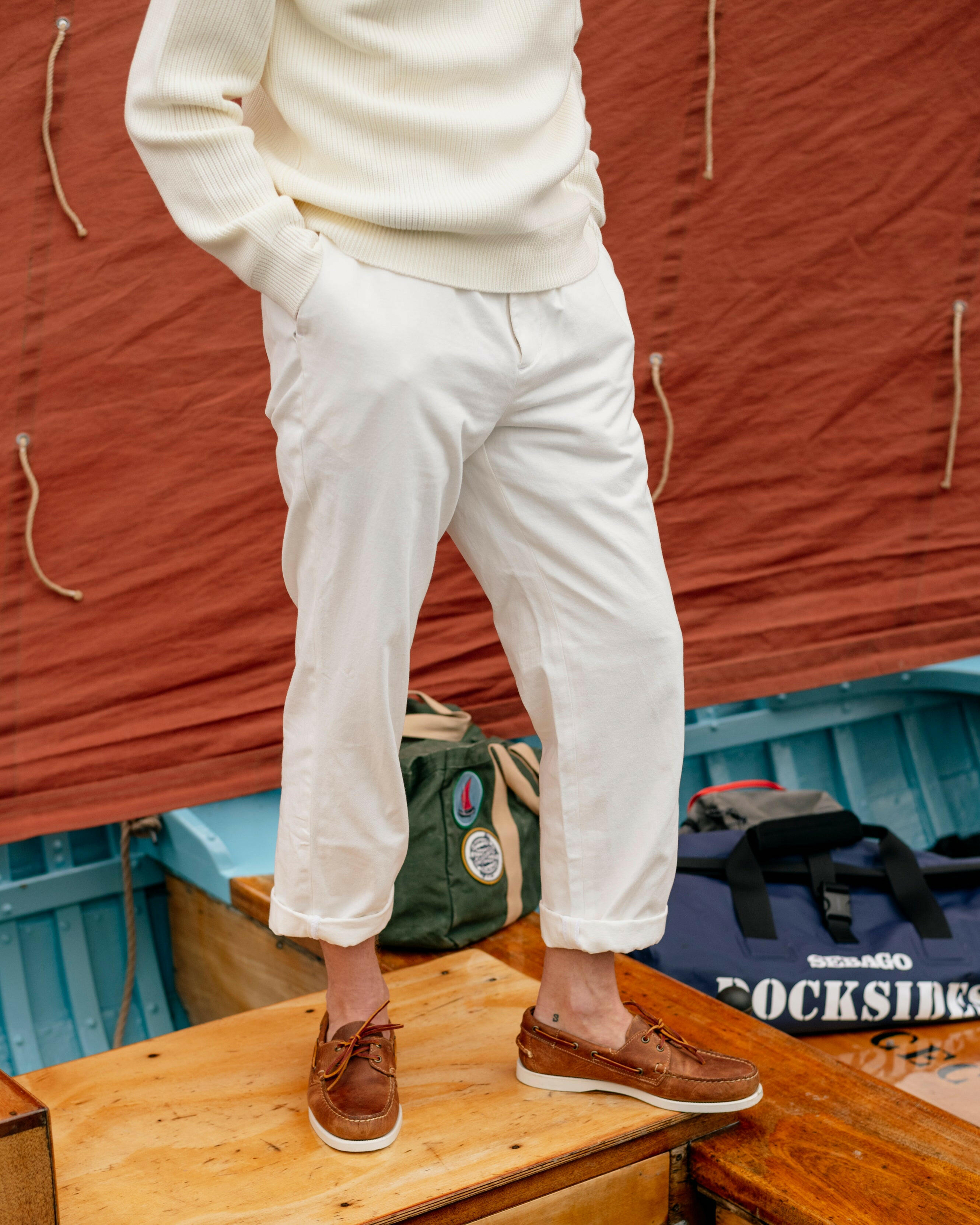

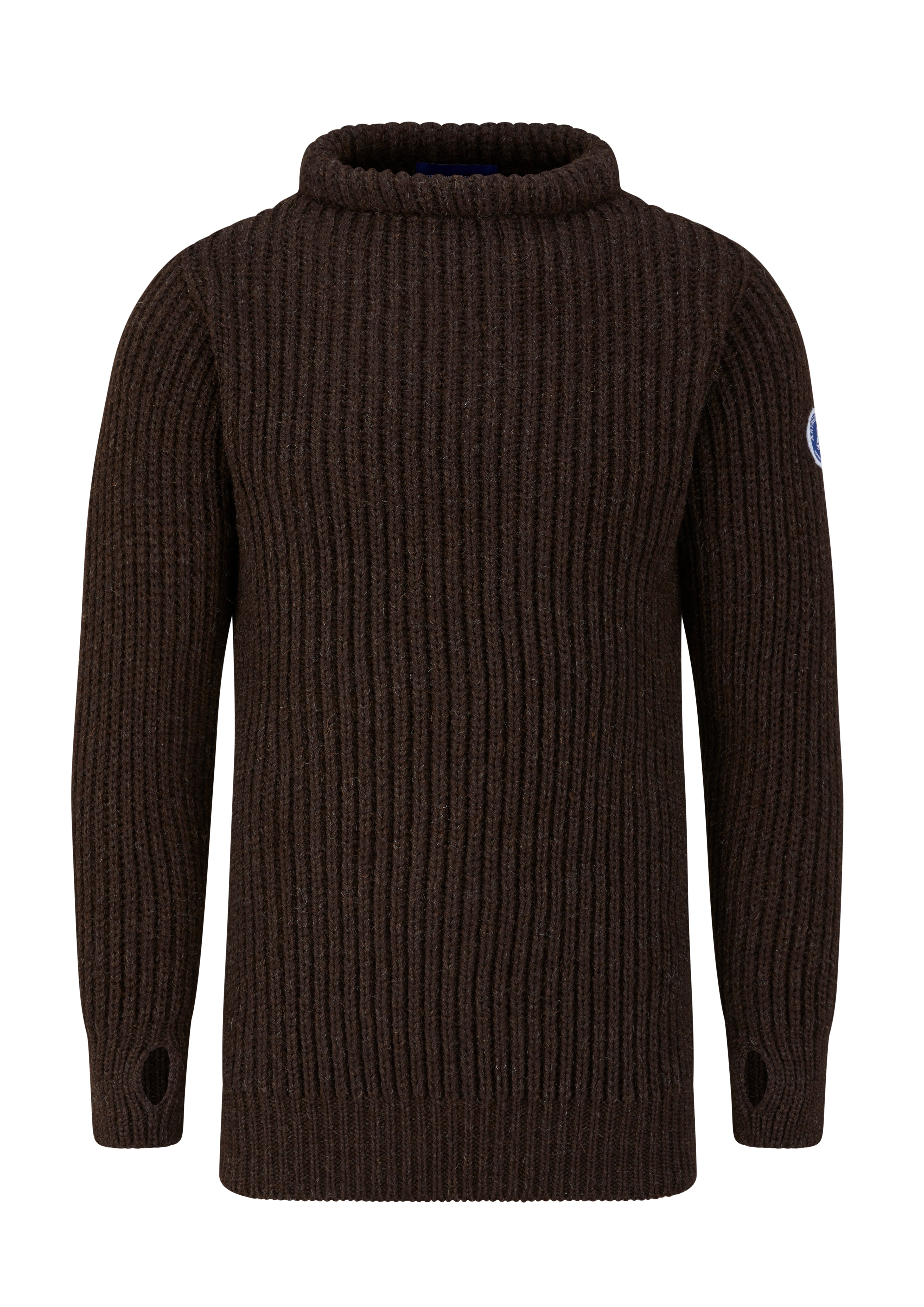
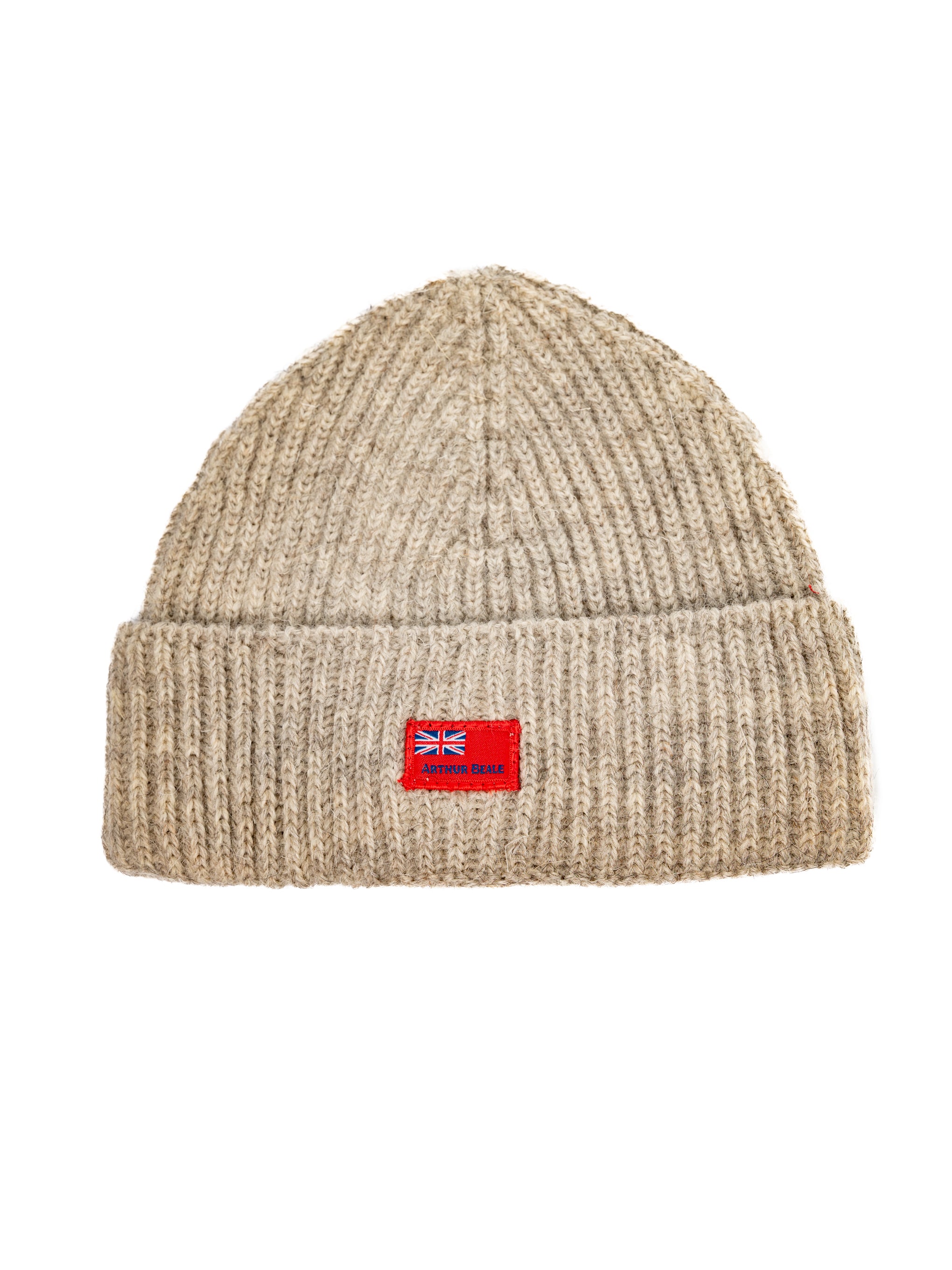


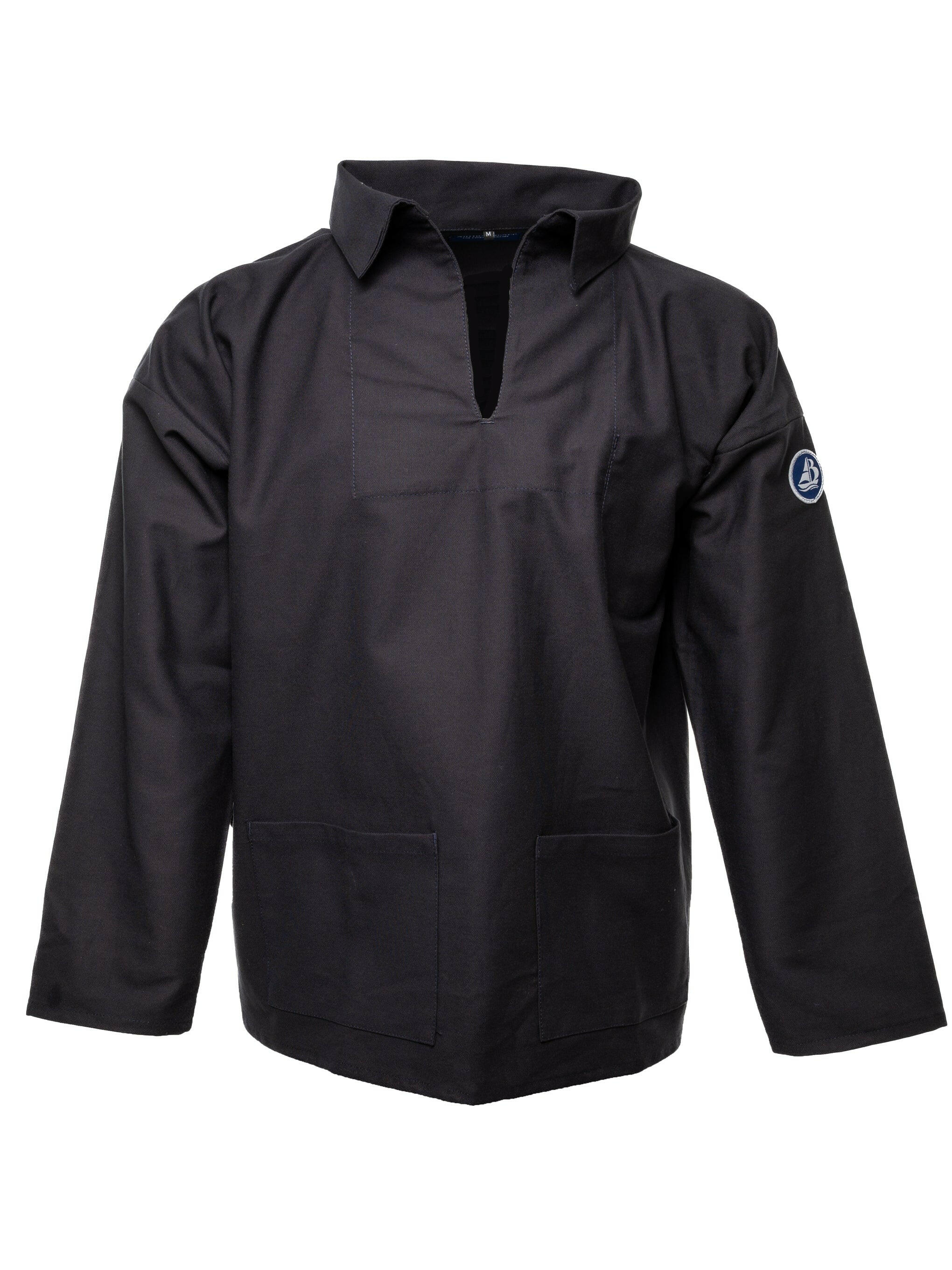
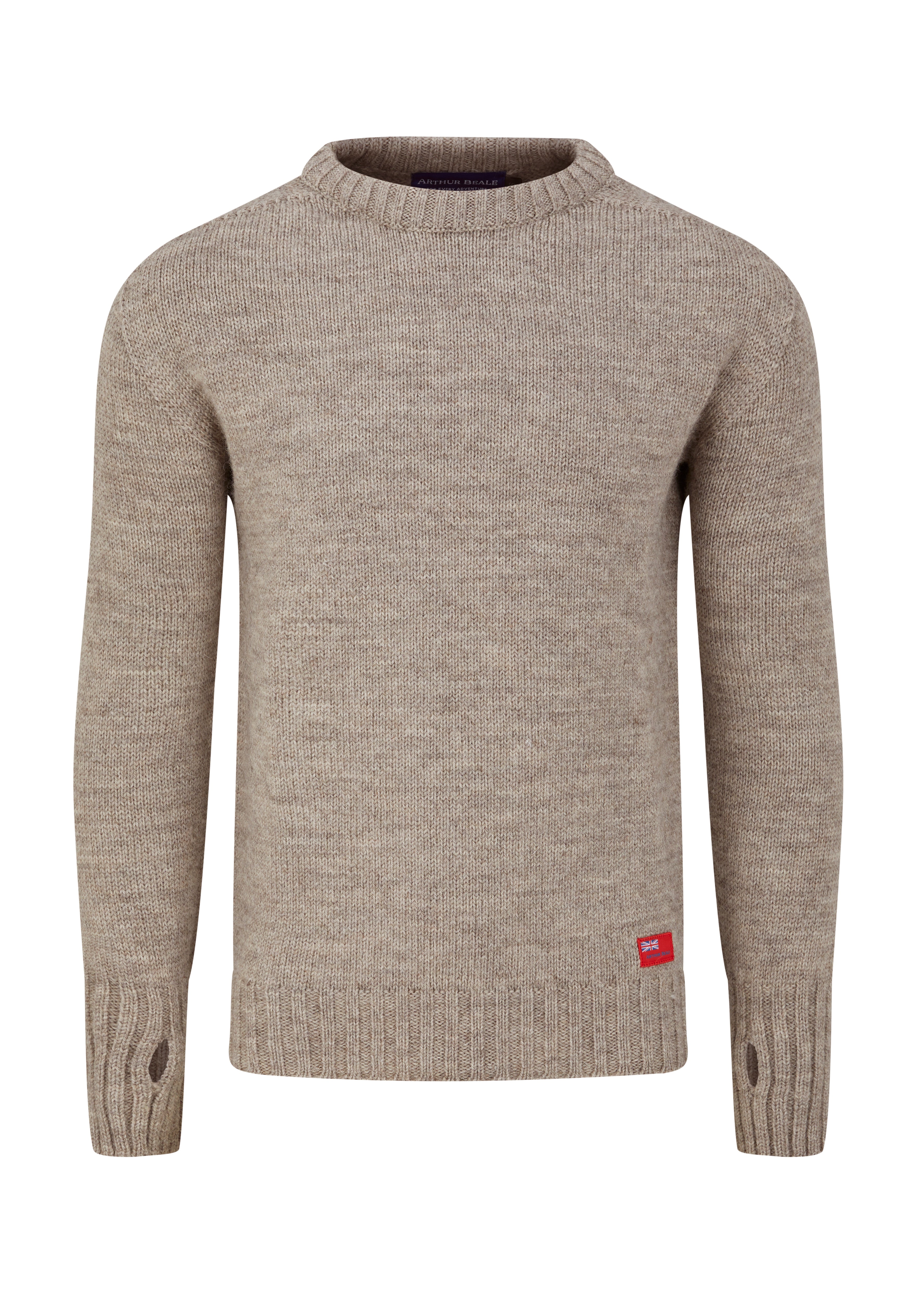
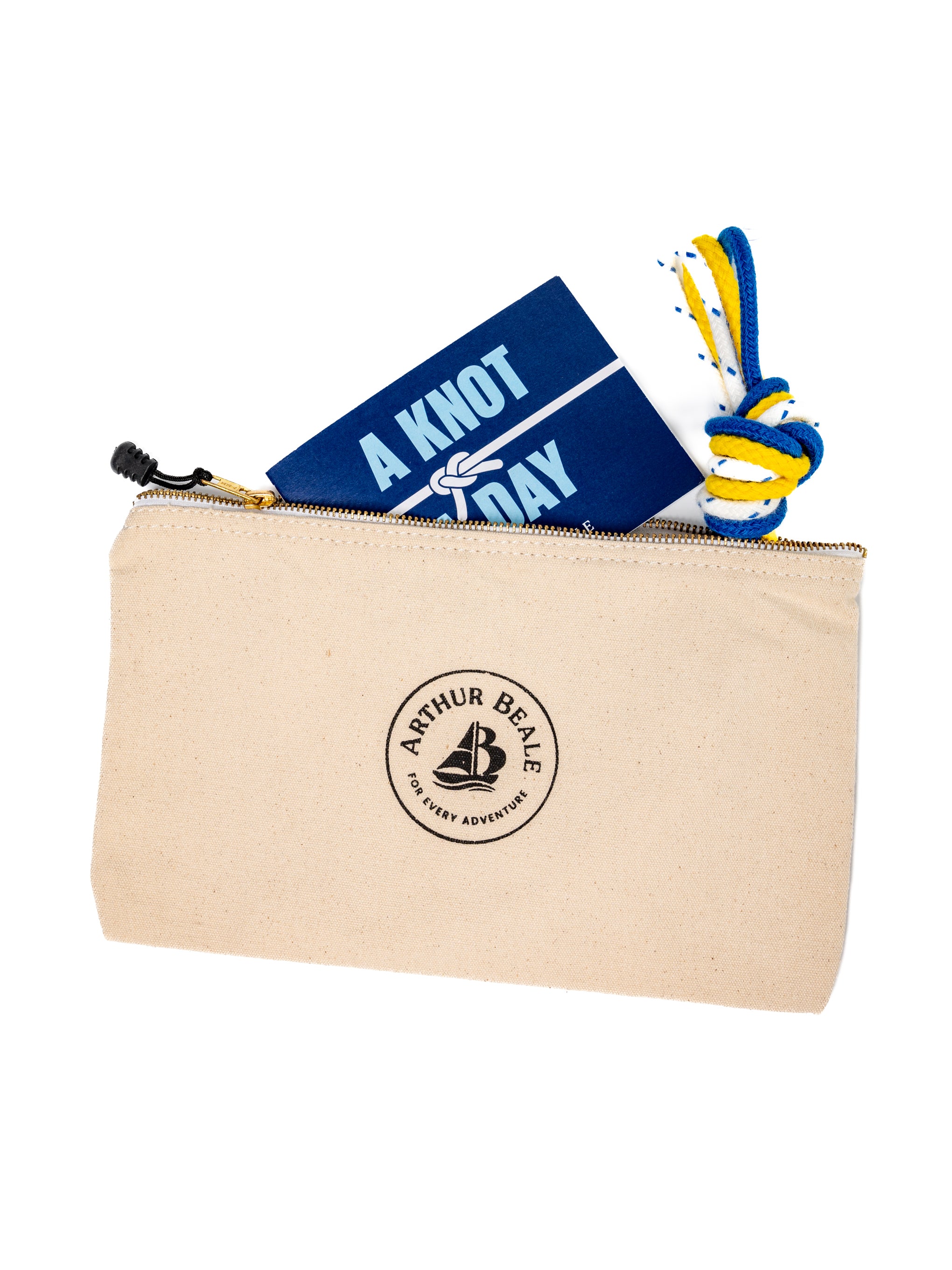
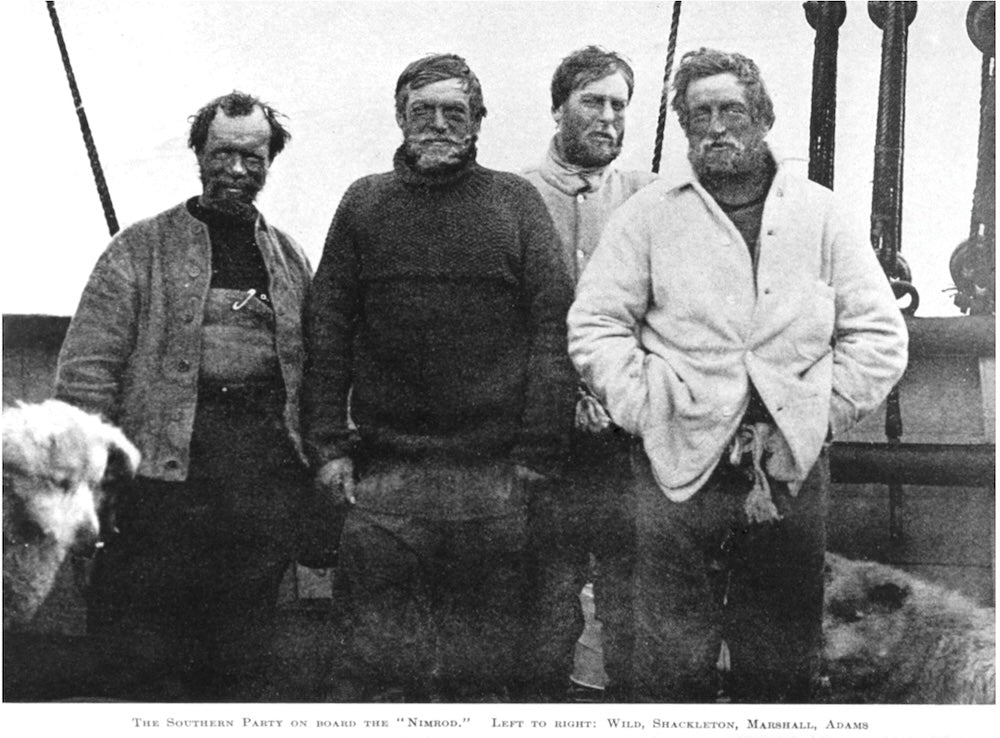

Leave a comment
This site is protected by hCaptcha and the hCaptcha Privacy Policy and Terms of Service apply.